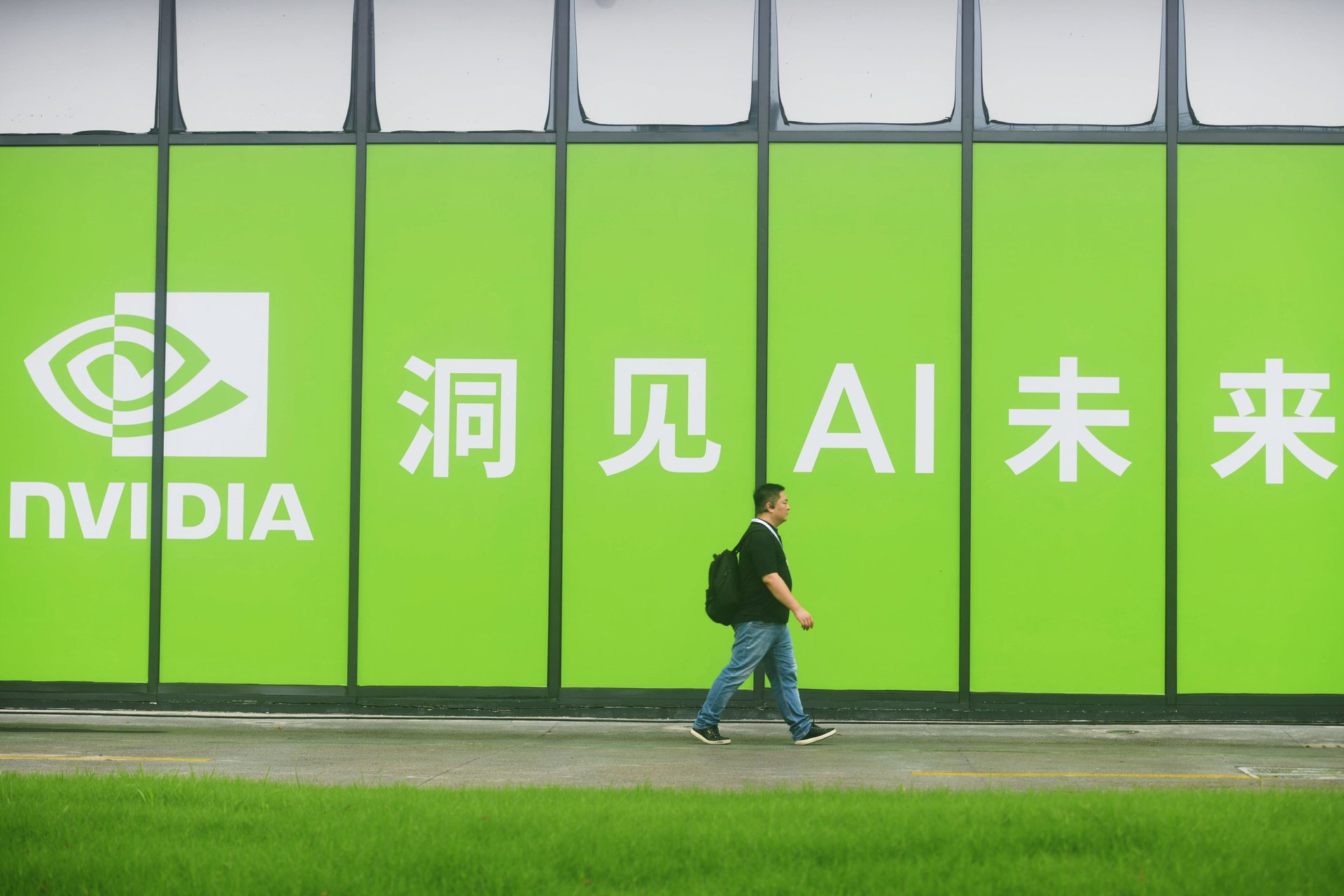Nvidia has been basically wiped out in China
With the company’s China business “100% out,” Nvidia is treating the world’s second-largest computing market as a rounding error — for now

CFOTO/Future Publishing via Getty Images
Jensen Huang says Nvidia has gone from running China’s AI chip table to being shut out of the casino entirely.
Suggested Reading
At a Citadel Securities event last week, the Nvidia CEO said the company’s China business is now “100% out,” describing a collapse from “95% market share to 0%” as U.S. and Chinese policy slammed the door on the company from both sides. “In all of our forecasts, we assume zero for China,” he added. “If anything happens there — which I hope it will — that will be a bonus.”
Related Content
The remarks mark Huang’s bluntest acknowledgment yet that tightening controls on the company’s advanced chip sales have effectively erased one of Nvidia’s biggest markets. Washington first banned exports of Nvidia’s most powerful AI accelerators, then extended the rules to neutered “A-series” chips designed specifically for China that came after a revenue deal.
Beijing then warned state-linked firms not to buy Nvidia products over national-security concerns and urged procurement of domestic alternatives such as Huawei’s Ascend line. The result: A market once responsible for roughly a quarter of Nvidia’s data-center revenue has vanished almost overnight.
Huang’s frustration seems as much economic as political. “I can’t imagine any policymaker thinking that [the policy is] a good idea,” he said, referring to U.S. policy that has excluded Nvidia from the country and calling China the world’s second-largest market for computing with a “vibrant ecosystem.” The company has long argued that cutting off U.S. suppliers will only accelerate China’s domestic push to build its own AI-grade silicon — and in doing so, erode U.S. leverage over the global tech supply chain.
Still, Nvidia’s stock barely flinched last week. Investors have largely already priced in the China loss, viewing it as the cost of doing business in an era where industrial policy sets the boundaries of growth. The company’s share price has more than tripled in the past two years as hyperscalers in the U.S., Europe, and the Middle East race to build “AI factories” and keep ordering chips by the gigawatt.
For now, Huang seems to be treating China as an empty column on the spreadsheet — and betting that, even if nothing changes in the country, the rest of the world’s appetite for compute will keep the lights on. “Zero” may simply be the new baseline for doing good business in an age of tech protectionism.
